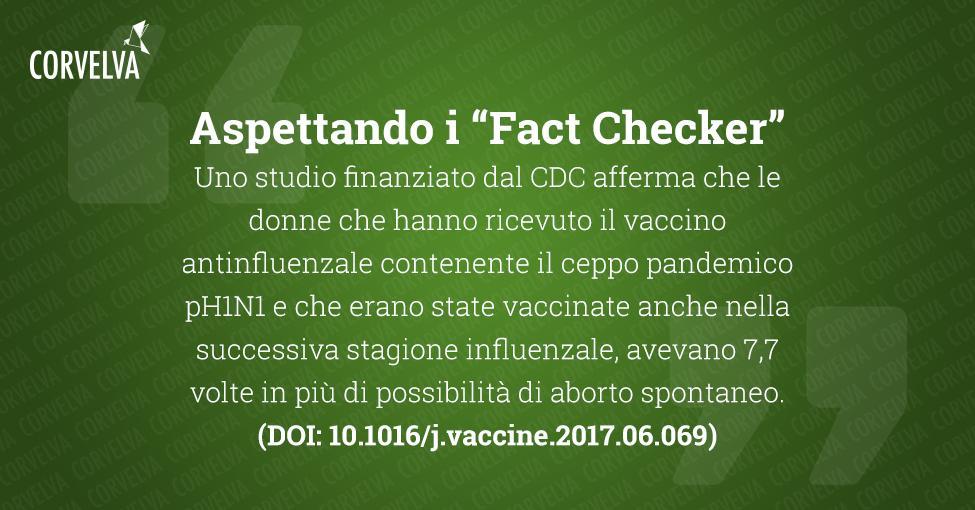Association of miscarriage with the reception of inactivated influenza vaccine containing H1N1pdm09 in 2010-11 and 2011-12

- James G Donahue, Burney A Kieke, Jennifer P King, Frank DeStefano, Maria A Mascola, Stephanie A Irving, T Craig Cheetham, Jason M Glanz, Lisa A Jackson, Nicola P Klein, Allison L Naleway, Eric Weintraub, Edward A Belongia
- DOI: 10.1016 / j.vaccine.2017.06.069
- September 2017
Abstract
Introduction: Inactivated influenza vaccine is recommended at all stages of pregnancy, but safety evidence in early pregnancy is limited, even for vaccines containing the A / H1N1pdm2009 (pH1N1) antigen. We sought to determine whether receiving a vaccine containing pH1N1 was associated with miscarriage (SAB).
Methods: We conducted a case-control study on two influenza seasons (2010-11, 2011-12) in the Vaccine Safety Datalink. Cases had SABs and controls had either live or stillbirths and were matched on-site, last menstrual date and age. Of the 919 potential cases identified using diagnosis codes, 485 were eligible and confirmed by medical record review. Exposure was defined as vaccination with inactivated influenza vaccine prior to the RAB date; the primary exposure window was 1-28 days before RAB.
Results: The corrected overall odds ratio (aOR) was 2,0 (95% CI, 1,1-3,6) for vaccine reception in the 28-day exposure window; there was no association in other exposure windows. In the season-specific analyzes, the AOR over 1-28 days was 3,7 (95% CI 1,4-9,4) in 2010-11 and 1,4 (95% CI 0,6-3,3, 2011) in 12-1. The association was modified by the flu vaccination in the previous season (post hoc analysis). Among women who received the pH1N1-containing vaccine in the previous flu season, the AOR over 28-7,7 days was 95 (2,2% CI 27,3-1,3); the aOR was 95 (0,7% CI 2,7-XNUMX) among unvaccinated women in the previous season. This change in effect was observed in every season.
Conclusion: RAB was associated with influenza vaccination within the previous 28 days. The association was significant only among women vaccinated in the previous flu season with a vaccine containing pH1N1. This study does not and cannot establish a causal relationship between repeat influenza vaccination and RAS, but more research is needed.

